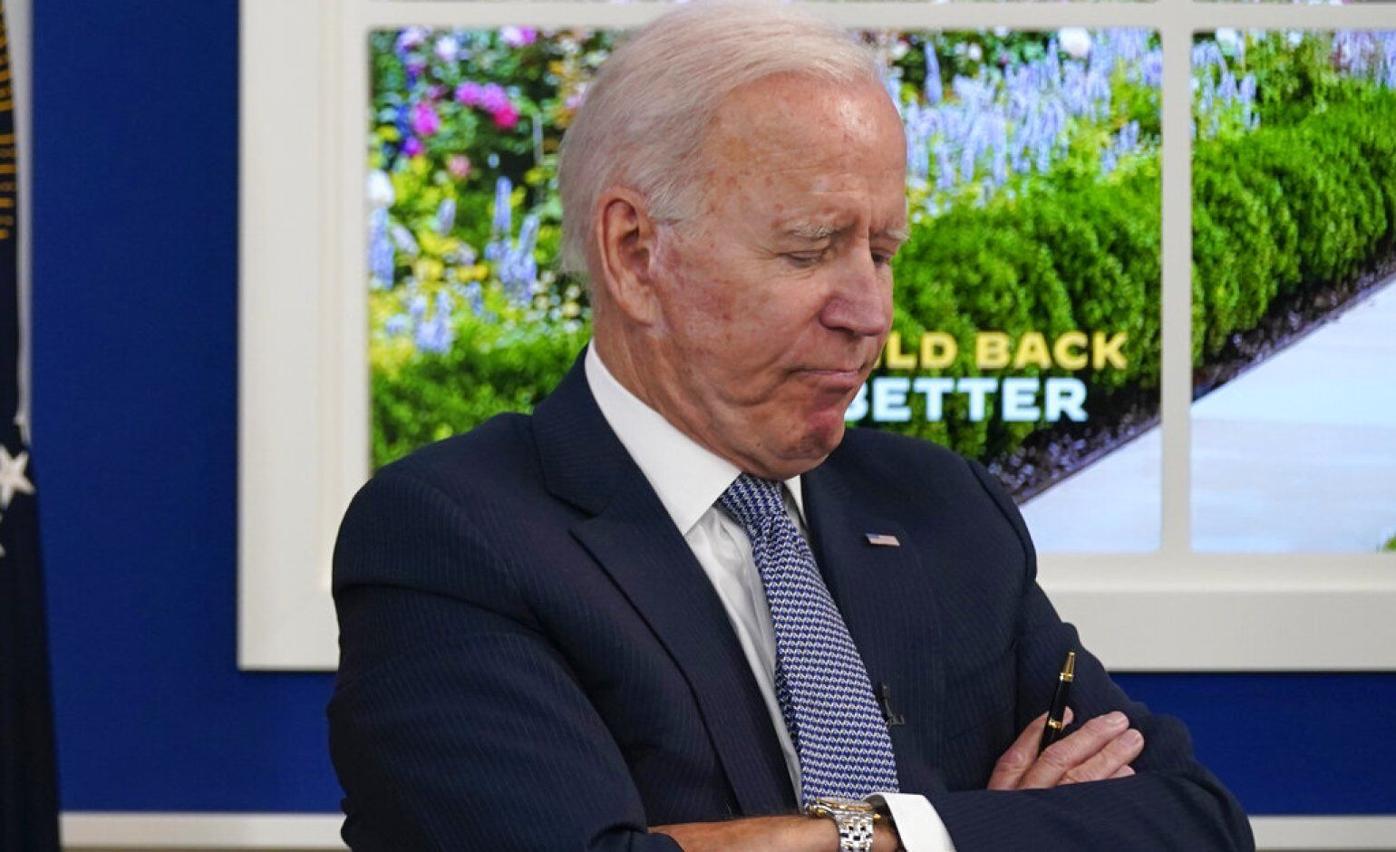Sagging poll numbers leave Biden with less muscle to push through his stalled agenda
President Joe Biden has vowed to help get the bipartisan infrastructure package and Democrats’ much larger partisan spending bill across the legislative finish line. Still, he faces yet another obstacle: his low poll numbers.
A Quinnipiac poll released on Wednesday showed Biden’s job approval ratings in the 30s, with his standing among independents in the low 30s. A solid 53% disapproved, leaving the president 15 points underwater. Biden won 51.4% of the popular vote last year.
This gives Biden little leverage over the competing factions of the Democratic Party. Centrists, who mostly hail from competitive states or districts, fear for their reelection and will want to show their independence from Biden and other party leaders. Left-wing Democrats, such as “the Squad,” mainly hold safe blue seats and may be more popular with their voters than Biden.
FIVE REASONS BIDEN’S APPROVAL RATINGS HAVE TAKEN A POUNDING
“It’s ugly,” said a Democratic strategist. Biden has worked to arrive at a top-line number for the $3.5 trillion reconciliation bill that will satisfy liberals and centrists alike. A White House readout of his meeting with a dozen lawmakers, many of them members of the Congressional Progressive Caucus, affirmed “how critical the Build Back Better Act and the bipartisan infrastructure bill are to his vision for ensuring our economy delivers for middle-class families, and not just those at the very top.”
A readout of a meeting with 11 swing-district Democrats, most of them relative centrists, contained similar language.
“They had a productive discussion about how each of these economic growth packages, both physical and human infrastructure, are central to how we ensure our economy delivers for the middle class and secure our competitiveness in the world,” the White House said.
But Sen. Joe Manchin of West Virginia, a pivotal centrist Democrat, reaffirmed he wasn’t backing down yet from his $1.5 trillion number for the spending bill and did not share the economic philosophy of those who originally wanted it to be $6 trillion or more. He also said he did not support a carveout that would allow Democrats to pass a debt ceiling increase without a filibuster or reconciliation.
In a 50-50 Senate, the Democrats need Manchin’s vote to pass anything without GOP cooperation.
A similar dynamic played out on the debt ceiling Wednesday. The White House sounded skeptical about Senate Minority Leader Mitch McConnell’s offer to allow a short-term extension to buy Democrats more time. Press secretary Jen Psaki scoffed at the Kentucky Republican’s statement, saying, “A press release is not a formal offer,” and rejecting it on the merits.
“Well, if we’re looking at the best options, why kick the can down the road a couple of more weeks? Why create an additional layer of uncertainty? Why not just get it done now?” Psaki said. “That’s what we’re continuing to press for, and that’s our first choice.”
Before Psaki’s Wednesday briefing ended, however, Democrats on Capitol Hill signaled they were prepared to accept McConnell’s terms reluctantly, though they remained opposed to pursuing a long-term extension through reconciliation as the GOP leader prefers.
Biden was never popular in Manchin’s West Virginia, which former President Donald Trump twice won by about 40 points. But now Democrats are worried about Biden’s popularity in Virginia proper, a state he easily carried last year and hasn’t voted for a Republican presidential nominee since 2004. Terry McAuliffe is hoping to retake the governorship there in this November’s election.
“The president is unpopular here in Virginia, so we have got to plow through,” McAuliffe acknowledged in a virtual rally, a stunning concession after staking so much of his campaign tying his Republican opponent to Trump. An Emerson College poll found 45% of Virginians approved of Biden’s performance in office, while 48% disapproved.
Henry Olsen of the conservative Ethics and Public Policy Center compared Biden’s support among independents nationally to Trump’s in the weeks following the deadly, racist Charlottesville rally.
Quinnipiac found Biden slightly underwater on the question of his COVID-19 management — 48% approve of the job he’s done, while 50% disapprove. But that was a high point. By much bigger margins, respondents disapproved of Biden on taxes, the economy, foreign policy, and immigration.
Only 44% now say Biden is honest, while 50% say he is not. Worst, only 42% regard his administration as competent, while 55% say it is not. These were major selling points for Biden, a two-term former vice president and 36-year senator, in the 2020 campaign. But perceptions have changed with high-profile problems ranging from the southwestern U.S. border to Afghanistan appearing to spin out of control.
“Battered on trust, doubted on leadership, and challenged on overall competency, President Biden is being hammered on all sides as his approval rating continues its downward slide to a number not seen since the tough scrutiny of the Trump administration,” Quinnipiac polling analyst Tim Malloy said in a statement accompanying the results.
CLICK HERE TO READ MORE IN THE WASHINGTON EXAMINER
These numbers could be disastrous for Democrats in next year’s midterm elections when they attempt to defend razor-thin majorities in both houses of Congress, and Republicans won’t even need a 1994-style red wave to take back control. But with the election over a year away, there is still time for Biden to recover.
A more immediate problem for Democrats is Biden’s fading numbers that don’t leave him with much juice to persuade recalcitrant lawmakers right now, with much of his agenda and even basic housekeeping items like addressing the debt limit and keeping the federal government open still left undone. Failure on these fronts could make it harder for Biden or his party to rebound.
Original Location: Sagging poll numbers leave Biden with less muscle to push through his stalled agenda
Washington Examiner Videos





